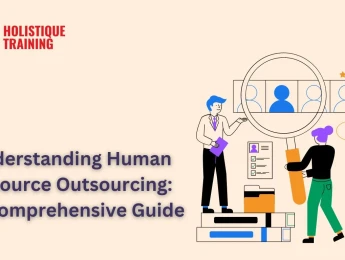- Table of Contents
- Introduction
- What is Human Resource Outsourcing (HRO)?
- What Services are Provided by HRO Companies?
- Recruitment and Talent Acquisition:
- Payroll Management:
- Benefits Administration:
- Training and Development:
- Performance Management:
- Compliance and Risk Management:
- Employee Relations and Conflict Resolution:
- HR Technology Solutions:
- Workforce Planning and Analytics:
- Diversity, Equity, and Inclusion (DEI) Initiatives:
- Health and Wellness Programs:
- Exit Management:
- The Benefits of Human Resource Outsourcing
- Cost Savings:
- Focus on Core Business:
- Access to Expertise:
- Scalability and Flexibility:
- Improved Compliance:
- Enhanced Employee Experience:
- Access to Advanced Technology:
- Better Risk Management:
- Global Reach and Local Expertise:
- Innovation and Continuous Improvement:
- What Types of Companies Perform HR Outsourcing?
- Small and Medium-Sized Enterprises (SMEs):
- Startups:
- Large Corporations:
- Nonprofit Organisations:
- Healthcare Organisations:
- Manufacturing and Industrial Companies:
- Technology Firms:
- Retail and Hospitality Businesses:
- Educational Institutions:
- Financial Services and Banking:
- Challenges of HR Outsourcing
- Loss of Control:
- Communication Barriers:
- Data Security Concerns:
- Cultural Misalignment:
- Dependency on External Providers:
- Transition and Integration Issues:
- Tips for Outsourcing HR
- Define Clear Objectives:
- Conduct Thorough Research:
- Evaluate Service Offerings:
- Assess Technology Compatibility:
- Prioritise Communication and Collaboration:
- Ensure Compliance and Risk Management:
- Define Service Level Agreements (SLAs):
- Involve Key Stakeholders:
- Plan for Transition and Change Management:
- Monitor Performance and Gather Feedback:
- Be Open to Adjustments:
- Evaluate Cost-Effectiveness:
- Conclusion
Introduction
Navigating the complexities of managing human resources can be daunting for any organisation, especially as companies grow and face new challenges. The modern business landscape demands agility and focus, compelling many organisations to seek ways to streamline their operations and concentrate on core competencies. This is where Human Resource Outsourcing (HRO) comes into play, offering a strategic approach to handling HR functions. This blog post will explore the intricacies of HRO, including its definition, services offered, benefits, the types of companies that typically engage in HRO, associated challenges, and practical tips for effectively outsourcing HR functions.
What is Human Resource Outsourcing (HRO)?
Human Resource Outsourcing (HRO) refers to the practice of delegating specific human resource functions or processes to external service providers. These functions can range from administrative tasks, such as payroll processing and employee record management, to more strategic HR roles, such as talent acquisition and workforce planning. The primary purpose of HRO is to enable organisations to focus on their core business activities while entrusting specialised HR functions to experts who can deliver these services more efficiently and effectively.
HRO is often characterised by the flexible nature of the services provided, which can be tailored to meet the unique needs of different organisations. This flexibility is particularly beneficial for businesses of varying sizes and industries, as it allows them to scale their HR functions according to their specific requirements and growth trajectories.
What Services are Provided by HRO Companies?
HRO companies offer a wide array of services designed to address the multifaceted needs of organisations. Some of the key services include:
Recruitment and Talent Acquisition:
One of the primary services offered by HRO companies is recruitment and talent acquisition. This includes job postings, candidate screening, interviewing, and selection processes. HRO providers often utilise advanced recruitment technologies and methodologies to attract top talent efficiently. They may also offer employer branding services to enhance a company’s image and appeal to potential candidates. By outsourcing recruitment, organisations can tap into a broader talent pool and ensure they find the right fit for their needs.
Payroll Management:
Payroll processing is a critical function that can be complex and time-consuming for organisations, particularly those with a large workforce. HRO companies provide comprehensive payroll services, including payroll calculation, tax withholding, and compliance with labour laws. They ensure that employees are paid accurately and on time while managing the complexities of payroll taxes, benefits deductions, and reporting requirements. By outsourcing payroll, organisations can reduce administrative burdens and minimise the risk of errors and penalties.
Benefits Administration:
HRO providers assist companies in managing employee benefits programs, including health insurance, retirement plans, and other perks. They handle enrollment, employee inquiries, and compliance with regulatory requirements such as the Affordable Care Act (ACA). HRO companies can negotiate better rates with insurance providers, ensuring that organisations can offer competitive benefits packages while controlling costs. This service helps organisations enhance employee satisfaction and retention by providing valuable benefits.
Training and Development:
Continuous employee training and development are essential for maintaining a skilled and knowledgeable workforce. HRO companies offer training programs, workshops, and e-learning solutions tailored to an organisation’s specific needs. They may also assist in developing leadership training and succession planning programs to cultivate future leaders within the company. By outsourcing training and development, organisations can access expert facilitators and resources, ensuring their employees receive high-quality instruction.
Performance Management:
Effective performance management systems are vital for driving employee engagement and productivity. HRO providers offer services related to performance appraisal processes, goal setting, and feedback mechanisms. They may implement performance management software for real-time feedback and performance tracking. This service enables organisations to create a continuous improvement and accountability culture while ensuring employees receive the support they need to excel in their roles.
Compliance and Risk Management:
Navigating the complex landscape of labour laws, regulations, and compliance requirements can be challenging for organisations. HRO companies provide expertise in compliance management, helping organisations stay up-to-date with changing regulations, such as those related to employee rights, workplace safety, and tax obligations. They also assist with risk management strategies to mitigate potential liabilities associated with HR practices. By outsourcing compliance and risk management, organisations can reduce the likelihood of legal issues and penalties.
Employee Relations and Conflict Resolution:
Managing employee relations and resolving conflicts are critical functions within HR that can impact workplace culture and productivity. HRO providers offer support in handling employee grievances, conducting investigations, and facilitating conflict resolution processes. They may also provide guidance on best practices for employee engagement and communication. Outsourcing these services ensures that employee concerns are addressed effectively and professionally, fostering a positive work environment.
HR Technology Solutions:
Many HRO companies offer advanced HR technology solutions, including Human Resource Information Systems (HRIS), applicant tracking systems (ATS), andperformance management software. These technologies streamline HR processes, enhance data management, and provide analytics for informed decision-making. HRO providers can implement and manage these systems, allowing organisations to leverage technology without the burden of maintaining it in-house. This access to cutting-edge technology can significantly enhance HR efficiency and effectiveness.
Workforce Planning and Analytics:
HRO companies assist organisations in workforce planning and analytics, helping them make data-driven decisions about staffing, talent acquisition, and employee development. HRO providers can identify trends, forecast future staffing needs, and optimise talent management strategies by analysing workforce data. This service is particularly valuable for organisations aligning their workforce with business goals and driving strategic growth.
Diversity, Equity, and Inclusion (DEI) Initiatives:
Promoting diversity, equity, and inclusion within the workplace is critical for many organisations. HRO providers offer services related to DEI strategy development,training programs, andemployee resource groups (ERGs). They can assist organisations in creating inclusive hiring practices, fostering a diverse workplace culture, and measuring DEI initiatives' effectiveness. By outsourcing DEI efforts, organisations can leverage expertise to create a more equitable and inclusive environment for all employees.
Health and Wellness Programs:
Employee well-being has a direct impact on productivity and engagement. HRO companies often provide health and wellness program services, including employee assistance programs (EAPs), wellness initiatives, and health screenings. These services help organisations promote a healthy work environment and support employees' physical and mental well-being. By outsourcing wellness programs, companies can offer valuable resources to employees, leading to improved morale and reduced absenteeism.
Exit Management:
Managing employee departures, whether voluntary or involuntary, is a sensitive aspect of HR that requires careful handling. HRO providers can assist organisations in conducting exit interviews, managing severance packages, and ensuring compliance with legal requirements during the termination process. This service helps organisations gather valuable feedback from departing employees while ensuring the exit process is handled professionally and compassionately.
By outsourcing these HR functions, organisations can leverage the expertise and resources of HRO providers, ultimately improving efficiency and effectiveness in their HR operations.
The Benefits of Human Resource Outsourcing
The decision to engage in Human Resource Outsourcing (HRO) can significantly enhance an organisation’s overall performance and operational efficiency. By leveraging external expertise and resources, companies can realise many advantages contributing to their success. Here are some of the key benefits of HRO, elaborated for a deeper understanding:
Cost Savings:
One of the most compelling reasons for outsourcing HR functions is the potential for substantial cost savings. Outsourcing can eliminate or significantly reduce overhead costs associated with hiring, training, and maintaining in-house HR staff. For instance, companies save on salaries, benefits, and training expenses for HR professionals. HRO providers often operate on a larger scale, enabling them to deliver services more cost-effectively due to economies of scale. This means businesses can access high-quality HR services without the financial burden of full-time staff.
Focus on Core Business:
When organisations delegate HR functions to external experts, they can redirect their focus and resources toward core business activities that drive growth and innovation. This shift allows companies to concentrate on strategic initiatives such as product development, customer engagement, and market expansion rather than getting bogged down in administrative tasks. This increased focus can lead to improved performance and competitive advantage in the market.
Access to Expertise:
HRO providers bring a wealth of specialised knowledge and experience in human resources, often possessing industry-specific insights and best practices that in-house teams may lack. This expertise can help organisations implement cutting-edge HR strategies and solutions that enhance employee engagement, performance management, and overall workforce effectiveness. By leveraging the skills of seasoned HR professionals, companies can avoid costly mistakes and optimise their HR processes.
Scalability and Flexibility:
As businesses evolve, their HR needs can fluctuate significantly. HRO offers organisations the scalability and flexibility to adjust their HR functions according to changing circumstances, whether it’s a surge in hiring needs, seasonal fluctuations, or the introduction of new services. This adaptability is particularly beneficial for businesses experiencing growth or restructuring, allowing them to scale their HR functions up or down without the challenges of hiring or laying off full-time employees.
Improved Compliance:
Navigating the complex landscape of labour laws and regulations can be daunting for organisations, especially as these rules frequently change. HRO providers are well-versed in compliance issues, helping companies mitigate non-compliance risks. By outsourcing HR functions, businesses gain access to expertise in regulatory requirements, ensuring they stay compliant with labour laws, tax regulations, and reporting standards. This reduces the risk of legal issues and minimises the potential for costly fines and penalties.
Enhanced Employee Experience:
Organisations can improve the overall employee experience by outsourcing administrative HR tasks such as payroll processing and benefits administration. HRO providers often employ advanced technology and systems to streamline these processes, ensuring timely and accurate payroll, responsive benefits management, and efficient employee communication. A positive employee experience increases satisfaction and retention rates, contributing to a more stable and engaged workforce.
Access to Advanced Technology:
Many HRO firms invest in state-of-the-art HR technology platforms that offer tools for streamlining various HR functions, from payroll processing to performance management. Organisations can benefit from these technologies without incurring the costs of purchasing and maintaining them. Advanced HR software solutions provided by HRO companies enable businesses to harness data analytics for better decision-making, workforce planning, and performance measurement, ultimately enhancing overall HR effectiveness.
Better Risk Management:
Outsourcing HR functions to experienced providers helps organisations better manage risks associated with human resources. HRO companies are equipped to handle employee relations, workplace safety, and labour law compliance issues. Their expertise in risk management helps organisations identify potential vulnerabilities and implement proactive measures to mitigate them. This enhances organisational resilience and stability, allowing businesses to navigate challenges confidently.
Global Reach and Local Expertise:
For organisations with a global presence or those looking to expand internationally, HRO offers the advantage of local expertise in different regions. HRO providers often have teams well-versed in various countries' labour laws, cultural nuances, and market conditions. This local knowledge can help organisations effectively manage their international workforce, ensuring compliance with local regulations while adapting HR practices to suit different cultural contexts.
Innovation and Continuous Improvement:
Engaging with HRO providers fosters a culture of innovation within organisations. Companies can continually improve their HR processes and strategies by collaborating with external experts who stay updated on the latest HR trends and best practices. This commitment to continuous improvement enhances overall organisational effectiveness and ensures that HR functions align with evolving business goals and workforce needs.
In summary, the benefits of Human Resource Outsourcing extend far beyond mere cost savings. HRO is pivotal in fostering organisational growth and success in today’s dynamic business landscape by enabling organisations to focus on core activities, access specialised expertise, and leverage advanced technologies. As companies increasingly recognise these advantages, HRO continues to gain traction as a strategic solution for effective human resource management.
What Types of Companies Perform HR Outsourcing?
Human Resource Outsourcing (HRO) is not limited to any specific type or size of organisation; it spans various industries and sectors. Companies, from small startups to large multinational corporations, recognise the value of outsourcing HR functions to streamline operations and enhance efficiency. Below, we explore the types of companies that typically engage in HR outsourcing, highlighting their unique needs and motivations.
Small and Medium-Sized Enterprises (SMEs):
HRO is often a strategic move for SMEs to level the playing field with larger competitors. These businesses may need more resources to maintain a full-fledged HR department or may find it cost-prohibitive. By outsourcing HR functions, SMEs can access professional HR services without the overhead of hiring in-house staff. This arrangement allows them to focus on their core operations while ensuring compliance with employment laws and managing employee-related tasks effectively.
Startups:
Startups, particularly in their early stages, face numerous challenges as they work to establish themselves in the market. Often strapped for resources and personnel, startups can benefit significantly from HRO. By outsourcing HR functions such as recruitment, payroll, and benefits administration, startups can save valuable time and energy that can be redirected toward product development and customer acquisition. Furthermore, outsourced HR services can help startups build a solid organisational framework from the outset, setting them up for sustainable growth.
Large Corporations:
Larger organisations frequently use HRO to manage complex and diverse HR needs across multiple locations or business units. These companies often have extensive employee bases, making in-house HR management more challenging and resource-intensive. Large corporations can achieve greater efficiency, maintain consistency in HR practices, and ensure compliance across different jurisdictions by outsourcing specific HR functions or even entire departments. Outsourcing also enables these firms to tap into specialised knowledge and technology, driving innovation in their HR processes.
Nonprofit Organisations:
Nonprofits often operate with limited budgets and resources, making HR outsourcing a viable solution. By outsourcing HR functions, these organisations can reduce administrative burdens while ensuring they have access to knowledgeable HR professionals who understand the unique challenges faced by nonprofits. HRO allows nonprofits to focus on their mission-driven work, enhancing their ability to serve their communities effectively.
Healthcare Organisations:
The healthcare industry is increasingly turning to HRO as it navigates complex regulatory requirements and the need for efficient employee management. Hospitals, clinics, and other healthcare providers benefit from outsourcing HR functions like recruitment, compliance management, and payroll. HRO providers specialising in healthcare can offer tailored solutions that address the industry's specific needs, including credentialing, staff training, and risk management. This helps healthcare organisations focus on patient care while ensuring they have the right talent and processes in place to operate smoothly.
Manufacturing and Industrial Companies:
Manufacturing companies often have high turnover rates and a diverse workforce, making efficient HR management critical. HRO can help these organisations streamline recruitment, onboarding, and training processes. Outsourcing also allows manufacturing firms to manage compliance with safety regulations and labour laws more effectively. HRO providers can offer specialised services such as employee safety training and performance management systems tailored to the manufacturing environment.
Technology Firms:
Fast-paced technology companies frequently rely on HROs to keep up with rapid changes in the industry and workforce dynamics. These firms often experience fluctuating staffing needs and may require specialised HR services such as talent acquisition, employee development, and benefits administration. By outsourcing these functions, technology companies can remain agile, attracting and retaining top talent while focusing on innovation and product development.
Retail and Hospitality Businesses:
Retailers and hospitality businesses face unique HR challenges, such as high employee turnover and seasonal staffing demands. HRO can help these companies efficiently manage recruitment and training processes, ensuring they have the right personnel in place during peak seasons. Additionally, outsourcing can provide access to advanced HR technology for managing employee scheduling, payroll, and compliance, ultimately enhancing customer service and operational efficiency.
Educational Institutions:
Schools, colleges, and universities often have complex HR needs, particularly concerning compliance with regulations and managing diverse employee groups. HRO can assist educational institutions in streamlining HR processes such as recruitment, payroll, and benefits administration. By outsourcing these functions, educational organisations can focus on their primary mission of education while ensuring they have effective HR systems in place to support faculty and staff.
Financial Services and Banking:
Financial services are subject to stringent regulations and compliance requirements, making effective HR management crucial. Banks and financial institutions often turn to HROs for assistance with risk management, regulatory compliance, and employee training. Outsourcing allows these organisations to access specialised HR knowledge and technology, enabling them to navigate complex compliance issues while focusing on core business operations.
In summary, a diverse range of companies across various industries engage in Human Resource Outsourcing. Whether small startups or large multinational corporations, organisations leverage HRO to access expertise, reduce costs, improve compliance, and enhance overall operational efficiency. As the business landscape continues to evolve, the trend toward HR outsourcing is expected to grow, offering organisations the flexibility and support they need to thrive in a competitive environment.
Challenges of HR Outsourcing
While HRO offers numerous benefits, it also presents certain challenges that organisations must consider. Understanding these challenges can help businesses make informed decisions about outsourcing their HR functions:
Loss of Control:
Outsourcing HR functions means relinquishing some degree of control over these processes. Organisations must trust their HRO provider to effectively manage their critical aspects of HR operations.
Communication Barriers:
Collaborating with an external provider can lead to communication challenges, especially if the provider is in a different geographic region. Clear communication channels and expectations must be established to mitigate misunderstandings.
Data Security Concerns:
HR functions involve sensitive employee information, and outsourcing raises concerns about data security and privacy. Organisations must ensure that their HRO provider has robust security measures to protect confidential information.
Cultural Misalignment:
The HRO provider's values and culture may not align with the organisation's. This misalignment can impact employee morale and the overall effectiveness of HR initiatives.
Dependency on External Providers:
Relying heavily on an HRO provider can create a dependency that may hinder an organisation’s ability to adapt quickly to changes in the business environment or internal needs.
Transition and Integration Issues:
Implementing HRO often requires a significant transition period, during which processes are restructured and integrated. This transition can be disruptive if not managed effectively.
Tips for Outsourcing HR
Outsourcing Human Resources (HR) can provide organisations numerous benefits, but successful implementation requires careful planning and consideration. Organisations should follow specific strategies to ensure a smooth transition and maximise the advantages of HRO. Here are key tips for effectively outsourcing HR functions:
Define Clear Objectives:
Before outsourcing HR, organisations must clearly define their objectives and expectations. Understanding what specific HR functions to outsource—whether it's payroll, recruitment, benefits administration, or employee relations—will help identify the right HRO provider. Setting measurable goals, such as improving efficiency, reducing costs, or enhancing employee satisfaction, will guide the selection process and ensure alignment with the organisation’s strategic objectives.
Conduct Thorough Research:
Selecting the right HRO provider is crucial for successful outsourcing. Organisations should conduct extensive research to identify potential vendors with a strong track record in the required services. This includes reviewing client testimonials, case studies, and performance metrics. Additionally, organisations should consider industry-specific experience, as some HRO providers specialise in certain sectors and understand the unique challenges those industries face.
Metric | Description |
Cost Savings | Reduction in overall HR operational costs. |
Time-to-Hire | Average duration from job posting to hire. |
Employee Satisfaction | Survey results measuring employee contentment. |
Compliance Rate | Percentage of adherence to legal requirements. |
Service Level Agreement (SLA) | Percentage of SLAs met by the provider. |
Table: Metrics to measure the effectiveness of HRO
Evaluate Service Offerings:
Different HRO providers offer varying levels of service and expertise. Organisations should evaluate potential vendors based on the breadth and depth of their service offerings. It’s essential to ensure the provider can meet all the organisation’s HR needs, whether through a single comprehensive solution or a modular approach that allows flexibility and scalability. Organisations should also inquire about additional services, such as technology solutions and compliance support, that may add value to their HR outsourcing strategy.
Assess Technology Compatibility:
Technology plays a significant role in HR outsourcing, and organisations should assess the technology platforms used by potential HRO providers. Compatibility with existing systems is essential to ensure a seamless integration of services. Organisations should inquire about the provider'sHR Information System(HRIS), applicant tracking systems, and other tools. A user-friendly and technologically advanced platform can enhance the efficiency of HR processes and improve employee experience.
Prioritise Communication and Collaboration:
Effective communication and collaboration between the organisation and the HRO provider are vital for a successful partnership. Organisations should establish clear communication channels and expectations for regular updates, feedback, and reporting. This collaboration should also extend to understanding the organisation’s culture, values, and specific needs, enabling the HRO provider to tailor their services accordingly. Regular check-ins and open lines of communication will help address any concerns promptly and foster a strong working relationship.
Ensure Compliance and Risk Management:
Compliance with labour laws and regulations is a significant concern for organisations outsourcing HR functions. Choosing an HRO provider with a robust understanding of applicable laws and regulations in the organisation’s jurisdiction is essential. Organisations should inquire about the provider's compliance processes, including managing risks associated with HR practices. Regular audits and assessments should also be part of the outsourcing agreement to ensure ongoing compliance and risk mitigation.
Define Service Level Agreements (SLAs):
Establishing clear service level agreements (SLAs) is crucial to ensure that both parties have a mutual understanding of expectations and performance standards. SLAs should outline specific metrics for success, such as response times for inquiries, accuracy in payroll processing, and timelines for recruitment processes. Defining these parameters in advance will provide a framework for evaluating the HRO provider’s performance and holding them accountable for meeting agreed-upon standards.
Involve Key Stakeholders:
Engaging key stakeholders within the organisation is essential for successful HR outsourcing. Involve leaders from various departments, including finance, operations, and legal, to gain diverse perspectives on the outsourcing strategy. Their input can help identify specific needs, address potential concerns, and ensure alignment with organisational goals. Involving employees in the process can also enhance acceptance and collaboration during the transition to outsourced HR functions.
Plan for Transition and Change Management:
Transitioning to an outsourced HR model involves change, which can be challenging for employees. Organisations should develop a comprehensive change management plan to facilitate a smooth transition. This plan should include clear communication about the reasons for outsourcing, the benefits of the new model, and how it will impact employees. Providing training and resources to help employees adapt to the changes will foster a positive reception and minimise disruptions during the transition.
Monitor Performance and Gather Feedback:
Once HR functions have been outsourced, organisations should regularly monitor the performance of the HRO provider against established SLAs and objectives. Collecting feedback from employees and stakeholders will provide insights into the effectiveness of the outsourcing arrangement. Regular evaluations will help identify areas for improvement, allowing organisations to address any issues proactively and enhance the overall partnership with the HRO provider.
Be Open to Adjustments:
The outsourcing landscape is dynamic, and organisations should remain flexible and open to adjustments as needed. As business needs evolve, it may be necessary to reevaluate the outsourcing arrangement and the services provided. Regularly assessing the effectiveness of the HRO provider and the services rendered will allow organisations to make informed decisions about future outsourcing strategies. Being open to change will ensure that HR outsourcing continues to meet the organisation’s evolving needs.
Evaluate Cost-Effectiveness:
While cost savings are often a primary motivator for outsourcing HR functions, organisations should assess the overall cost-effectiveness of the arrangement beyond initial savings. This evaluation should consider the quality of services provided, employee satisfaction, and the impact on overall productivity. Regularly reviewing the cost-benefit analysis will help organisations make informed decisions about the value of outsourcing HR functions and whether adjustments are necessary.
In summary, successfully outsourcing HR functions requires careful planning, clear communication, and ongoing evaluation. By following these tips, organisations can navigate the outsourcing process effectively, ensuring that they maximise the benefits of HRO while addressing potential challenges. A well-executed HR outsourcing strategy can ultimately enhance organisational efficiency, improve employee satisfaction, and drive overall business success.
Conclusion
Human Resource Outsourcing (HRO) presents organisations with a strategic avenue to enhance operational efficiency, reduce costs, and access specialised expertise. By carefully selecting the right HRO provider and implementing best practices for outsourcing, businesses can unlock significant benefits while effectively navigating the challenges associated with external partnerships. As organisations continue to evolve in a competitive landscape, embracing HRO can be a pivotal step toward fostering growth and achieving long-term success.
To further enhance your HR strategy, consider enrolling in our course,HR Decision-Making Analytics. This course equips you with the essential skills and insights to leverage data-driven approaches in HR, allowing you to make informed decisions that align with your organisational goals. Master analytics techniques that can transform your HR practices and drive better outcomes for your business, gaining you a competitive edge.
























